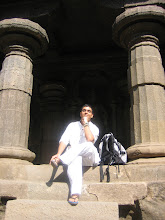 One of the most insightful ways to probe vegetarianism (or lack thereof) in Western Buddhism is to look at just how the Buddha's teaching came to the West. The earliest and perhaps most influential Buddhist schools to gain widespread popularity were the Japanese Zen traditions. Initially presented by Beat Generation writers like Gary Snyder and Jack Kerouac, the word 'Zen' can now be found on everything from cereals to portable music players. The Zen traditions in Japan, despite being transmitted from the Ch'an masters in China, did not and still do not place a large emphasis on vegetarianism.
One of the most insightful ways to probe vegetarianism (or lack thereof) in Western Buddhism is to look at just how the Buddha's teaching came to the West. The earliest and perhaps most influential Buddhist schools to gain widespread popularity were the Japanese Zen traditions. Initially presented by Beat Generation writers like Gary Snyder and Jack Kerouac, the word 'Zen' can now be found on everything from cereals to portable music players. The Zen traditions in Japan, despite being transmitted from the Ch'an masters in China, did not and still do not place a large emphasis on vegetarianism.The second major influential tradition in the West comes from Tibet. Doctrinally, many of the tantric texts that are part of the Vajrayana teachings actually encourage the consumption of meat and view vegetarianism as unnecessary. Furthermore, meat eating is specifically recommended in some esoteric rituals. Practically, vegetariansm in Tibet was extremely difficult if not impossible due to its harsh geography and climate, especially during the winter.
Finally, practitioners of Theravada tradition (mostly Vipassana meditation schools) represent the third most popular school. As the "strictest" tradition, the Theravada school focuses on the early Pali scriptures which do not specifically recommend a vegetarian diet (or meat eating for that matter). Meat eating is thus widespread in the major Theravada regions like Sri Lanka, Burma, and South East Asia.
Because vegetarianism is not particularly encouraged or observed in these three traditions, the phenomenon of "importing" a living vegetarian Buddhist tradition has been very limited. There are certainly exceptions though. The Chinese Buddhist traditions (Ch'an and especially Pure Land) as well as some of the Korean and Vietnamese traditions are gaining popularity and are also vegetarian.
Looking at it from this lens, the reasons for the lack of vegetarianism amongst Western Buddhists are easily understood. So what's happening now? Despite a general climate that may have de-emphasized vegetarianism, something very interesting has begun happening: many Western practitioners and teachers have begun to embrace the way of the herbivore.
The late Roshi Phillip Kapleau, teacher in the Soto/Rinzai Japanese Zen schools was an ardent supporter of vegetarianism. His classic treatise, "To Cherish All Life: A Buddhist View of Animal Slaughter and Meat Eating"is still widely read. The famous Tibetan yogi Shakbar Tsodruk Rangdrol (1781-1851), was famous for his teachings on vegetarianism. This is quite remarkable considering view of meat eating as an "unfortunate necessity" among many Tibetans (and other Buddhists around the globe) past and present. Additionally, many modern Tibetan teachers in the West, such as Chatral Rinpoche, have become strong advocates of abstaining from meat. Satya Narayan (S.N.) Goenka, the highly influential teacher of Burmese Vipassana meditation, follows a vegetarian diet and the retreat centers founded by him serve only vegetarian meals.
 This last paragraph may seem a bit strange given the earlier description of the Japanese Zen, Tibetan, and Theravada traditions as being very meat tolerant. But is it really so strange? That teachers who come from traditionally non-vegetarian schools would adopt and champion vegetarianism is not a new occurrence. In fact, its very, very old. Just like the early Mahayana Buddhists of ancient India, many Buddhists in the West have now begun to realize how large a contradiction intentionally eating meat and trying to practicing the Dharma entails. They have recognized just how peculiar an institution meat eating is. Having teachers/students from non-veg lineages now advocating a meat free diet also points to something very profound about our situation. We are not wandering ascetics in ancient India begging for food and we are not living in the snow capped mountains of Tibet.
This last paragraph may seem a bit strange given the earlier description of the Japanese Zen, Tibetan, and Theravada traditions as being very meat tolerant. But is it really so strange? That teachers who come from traditionally non-vegetarian schools would adopt and champion vegetarianism is not a new occurrence. In fact, its very, very old. Just like the early Mahayana Buddhists of ancient India, many Buddhists in the West have now begun to realize how large a contradiction intentionally eating meat and trying to practicing the Dharma entails. They have recognized just how peculiar an institution meat eating is. Having teachers/students from non-veg lineages now advocating a meat free diet also points to something very profound about our situation. We are not wandering ascetics in ancient India begging for food and we are not living in the snow capped mountains of Tibet.As people living in the West, we have access to an absolutely dizzying cornucopia of culinary variety. Simply put, we can eat what we want, whenever, and however we want. The fact that we can intentionally choose what we place in our bodies is the vital point here. Because we're blessed to live in a society where its so easy to cut meat from our diet, I will argue that it is our obligation as followers of the Buddha's way to go vegetarian. If this, for whatever reason, is not possible then at the very least we should significantly minimize the amount of meat that is consumed.
The physical, spiritual, economic, environmental, financial, and heath-related benefits of the vegetarian diet have been known for millennia and are far too numerous to expound here. While there may be a few (certainly disputable) benefits to consuming the flesh of animals, the spiritual, ecomomic, environmental, and financial benefits are essentially non-existent. Not only does the methane produced by livestock contribute signficantly to global warming, deforestation, and transportation also burden an already burdened planet. As for world hunger, imagine if all the food and resources used to feed animals awaiting slaughter were instead used to feed human beings.
One criticism non-veg Buddhists make against their herbivore bretheren is that many vegetarians cling to this view and use it to boost up the ego. There is certainly some truth to this criticism. I've personally encountered many vegetarians (mostly not Buddhist) who struck me as arrogant [expletives deleted]. Eating meat doesn't make you a "bad Buddhist" by default anymore than being a vegetarianism makes you an enlightened being (although its a start!). Ad hominem attacks however, do not deal with the real issue. Although arguments can be made for some extenuating circumstances where meat would have to be consumed, to defend meat eating as institution is a clear violation of the First Precept: not to take the life of any living creature. From Buddhist point of view, to rationalize the absolutely unnecessary killing of animals for an irrational food preference is most unskillful indeed.
Lay teacher and Dharma Friend Michael Roehm says of food "eating is the most intimate thing we do, more intimate than sex. Think about it. But not too much".
If you haven't noticed already, I am a fierce advocate of vegetarianism, particularly for those who wish to seriously practice the Dharma. However I do realize that there are situations were this may not be possible. My arguments outlined above are concerned with intentionally (as in karma) eating meat. To be clear, let me summarize my arguments for a Buddhist vegetarian lifestyle:
1. To willingly choose to dine on meat is a violation of the First Precept.
2. There are reasons why past Buddhist traditions have not been vegetarian. This is not the past. It is the present and it will be the future.
3. As people living in the West, we can choose to eat whatever we wish.
4. Because we have this choice, we have an obligation as followers of the Buddha to make the skillful choice and be vegetarian. The benefits are limitless.
5. If meat cannot be completely removed from one's diet, then one should significantly minimize the consumption of it.
6. Think hard about where your food comes from and the labors that brought it to you. If you eat meat, think very hard about this.
As a vegetarian, I find the prevalence of meat eating among Buddhists in the West disheartening but I hope that many will continue to recognize the opportunity we have to do away with it. May the peculiar institution of meat eating soon become an illegitimate and outdated one.








No comments:
Post a Comment